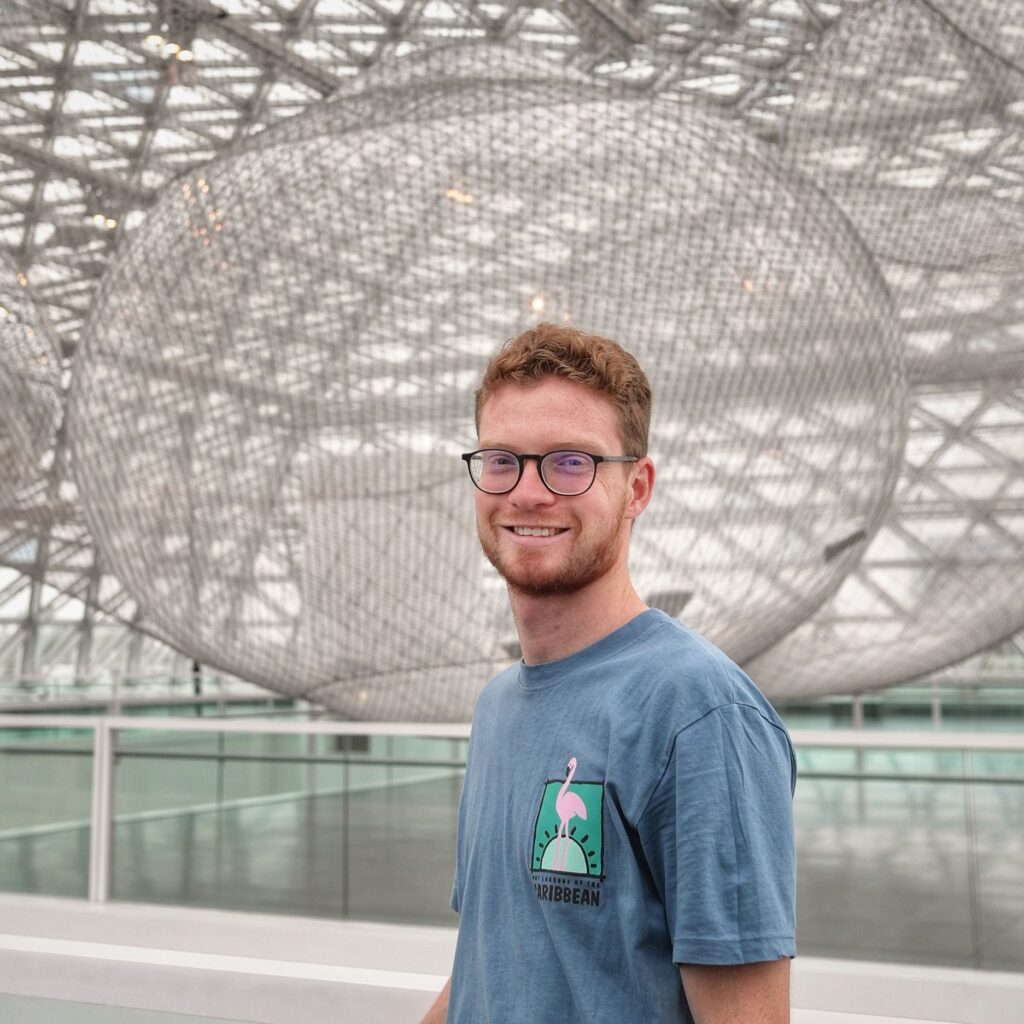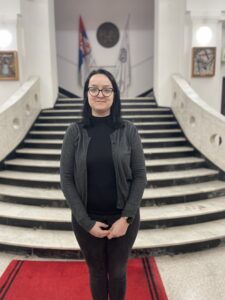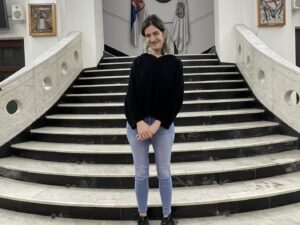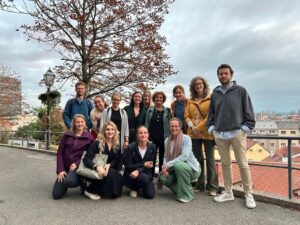I work at De Watergroep as an advisor on drinking water supply. My primary job is working with hydraulic modelling to set out strategy for planning such as where to invest in new facilities like pumping stations, treatment plants, or around continuing operations. We look at pressure management and reducing leaks, and the operational level in designing pipelines or pumping stations that may need a refit because of age or wear. The hydraulic models are also used for pressure management and defining the district metered area (DMA) to divide the network into zones in order to register consumption. We also support the water accounting team with hydraulic models to find locations for sensors for pressure and flow devices.
Most of my work is done with computer models on specific software. A typical day is spent gathering information and exchanging data with colleagues on water consumption areas. We are also in contact with the operators to see what kind of controls they have and how the network is running with the pumping stations. We combine this info in the hydraulic model, run our simulations, and then present the results. These models compute numerous scenarios, and we are tweaking a bit in the network for the best solution. We also create reports for regulators that analyze potential shortages for customers if a pumping station shuts down. You cannot test these kinds of things in real life!
Motivation in water – in work – in the community
We are in the center of the organization through contact with so many people because we need to provide information in models, and this gives a big overview of how water services run. We as a team have to think and work on what is best for the company, and I think this makes for an impactful job. I like figuring out scenarios taking all factors into account to support decisions.
We have experienced several droughts in the past years in Flanders which put our water supply under stress. We can see some water sources are diminishing, so we do feel the impact. A part of my job is to mitigate these factors, and I know that future climate impacts remain uncertain. This makes a challenge in planning especially in hydraulic modelling. If you don’t know the variables you’re planning for, it is hard to define the optimum solution.
There is urgency and momentum on climate now, and I believe this has changed over a short time span. We have a political situation where some people in Flanders would like to be independent, and this has resulted in past decisions that complicate cooperating on water supply with other parts of the country. Historically we had a strong connection, as De Watergroep was a national company, but in the 1980s it was split into parts over Wallonia and Flanders. I think people have also discovered the need of national cooperation on water, especially with increasing stress on sources.
I am 25 years-old and live in the city of Dendermonde in the province of East Flanders, Belgium. When I’m not working, I like to be outside as much as possible hiking and biking. I also like going to Flemish Ardennes where we have bike races, to the Alps when there is time, and I have a trip to Iceland planned later this year. I have a master’s degree in civil engineering at the Free University of Brussels, and still enjoy going to the Opera House and museums in the city.
About EJWP
I really like the training week concept, especially the Milan at the start of 2023, where we had a range of field visits and tours. We discussed trainings within our group and people are getting more comfortable to share more. In our previous training week in Greece, people were still new and not sharing as much. We meet online every week, and have seen a positive impact on our interaction during the training sessions. The takeaways have helped me already in the office –in communication with others and organizational tasks.
We had one EJWP project so far on what makes a Nexus project successful. We delivered good results and I think the client was satisfied, however I’m still reaching for the understanding of the why in the project. Everyone has worked together through a base of trust and reliability. Cooperation with such diverse team members is not always evident.
I had my first real experience with EJWP and Water Europe all at the same time in Brussels last year. It was a nice event, but the topics – even though interesting – were not in my expertise, so it was a bit hard to follow. It was high level and dealt a lot with water quality, and I deal with more water supply. I did make some useful professional connections. EJWP is good for networking, and with Water Europe specifically. Our De Watergroep CEO, Hans Goossens, is also President of Water Europe now, and it was good to meet him in person at the event.
De Watergroep will host a training week this year, which should build some inter-organizational cooperation, and perhaps I could act as a liaison between our research and development department and other participants representing their organizations. There are also different projects and training weeks to come with their own challenges to be met, each with a unique and interesting angle. I’m not yet familiar with water quality issues, but I can grow in my knowledge and learn from the experts to benefit my work. In De Watergroep, there will be more focus on water quantity and quality at the same time. From my engineering point of view, we are looking at solutions and where there are connections with the water sources and more. It is an exciting time to be working on this.






